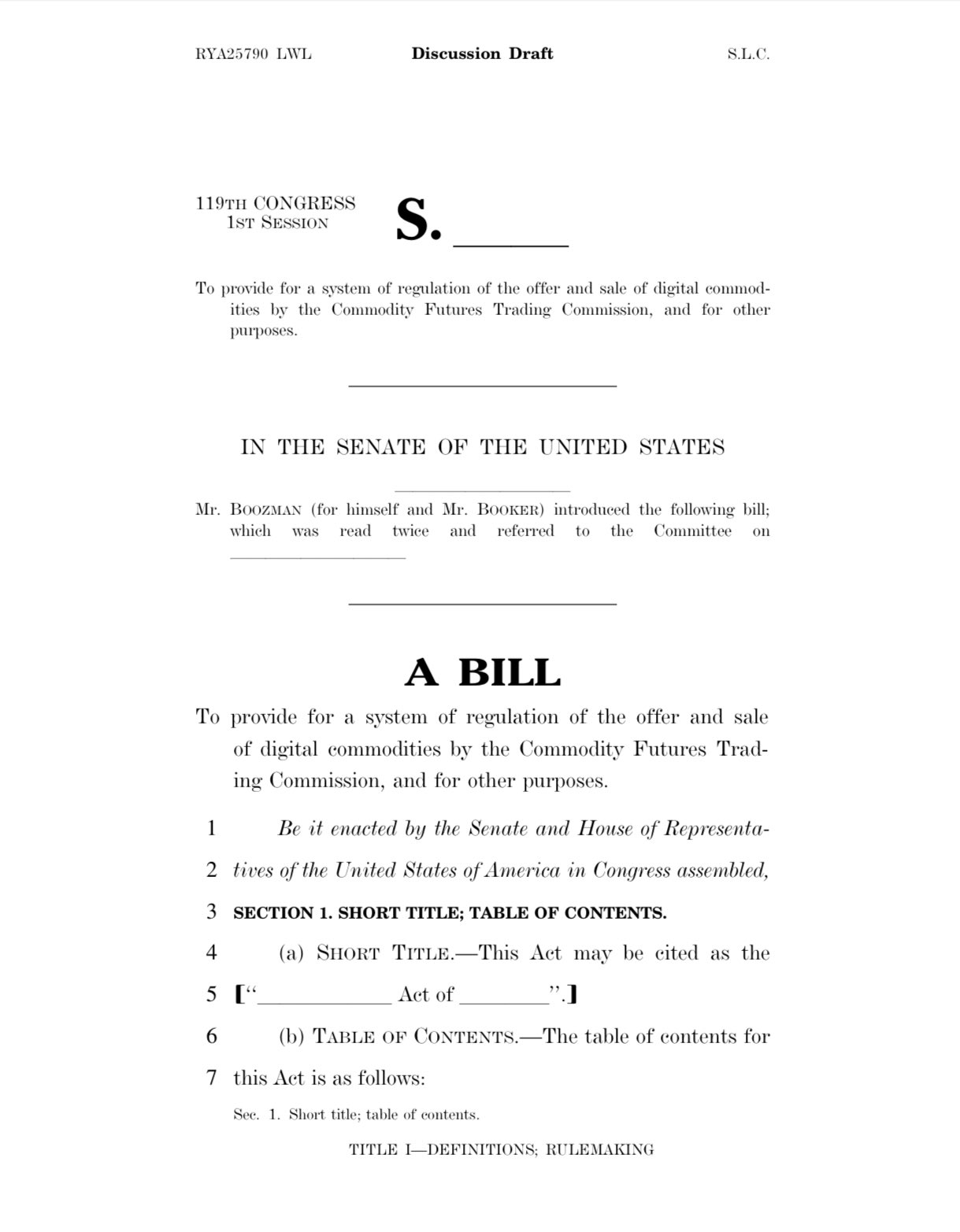The US Senate Agriculture Committee has unveiled a Crypto Market Structure Draft Bill
The US Senate Agriculture Committee has unveiled a bipartisan market structure draft bill that could significantly redefine how digital assets are governed in America. The move follows years of industry calls for clarity and comes as the crypto sector continues to influence both financial markets and policy debates in Washington.

Image Source: U.S. Senate Committee on Agriculture
Bridging Regulatory Gaps
The draft, unveiled on November 10, 2025, by Senate Agriculture Committee Chairman John Boozman (R-Arkansas) and Senator Cory Booker (D-New Jersey), aims to bring much-needed transparency and oversight to the rapidly expanding crypto sector. Their bill, still in the discussion draft phase, is designed to empower the Commodity Futures Trading Commission (CFTC) with broader authority over so-called “digital commodities” like Bitcoin and Ethereum, issues the SEC’s jurisdiction on tokens deemed securities separately.
The draft amends the Commodity Exchange Act, establishing the CFTC’s primacy in regulating spot trading of digital commodities, while also mandating registration and compliance for brokers, dealers, exchanges, and custodians working with these assets. Notably, the bill includes robust consumer protection requirements such as anti-manipulation protocols, segregation of customer funds, cybersecurity mandates, and chief compliance officers for custodians.
Key Provisions
Brackets and highlighted sections throughout the draft underscore unresolved negotiations among lawmakers, particularly around definitions, the treatment of DeFi, and privacy-centric coins. Lawmakers, lobbyists, and industry analysts consider these issues critical: how to distinguish centralized intermediaries from open-source software, and how to address privacy while meeting regulatory goals.
There’s bipartisan urgency to solidify these definitions and regulatory boundaries, as only Congress has the authority to give clear roles to agencies like the CFTC and the Securities and Exchange Commission (SEC). The draft also directs these agencies to collaborate on joint rulemaking especially for activities that straddle both regulatory domains, like portfolio margining and overseeing intermediaries with hybrid functions.
Self-Custody Rights
The most striking in the draft is its recognition of the right to self-custody digital assets, allowing individuals to store and transact crypto directly via wallets they control, exempt from burdensome money transmitter rules. Advocates and market participants praise this feature as a win for user autonomy, while still calling for “robust developer protections” in areas yet to be settled, particularly DeFi. Industry groups like the DeFi Education Fund have weighed in, hopeful for future amendments that distinguish between centralized businesses and decentralized, non-custodial software. The CFTC is tasked with finalizing related rules within 18 months once the legislation is enacted, leaving a transition window for companies to comply with new requirements. Coordination with international counterparts and further rulemaking for mixed securities-commodities activities are also outlined, reflecting crypto’s global footprint and evolving complexity.
Market Impact
The bipartisan momentum for clear, innovation-friendly oversight is viewed as a milestone, signaling that Congress wants to encourage both growth and investor protection in the digital asset economy. The current discussion draft is one part of a broader legislative push. For industry participants, the Senate Agriculture Committee’s bill is a positive step toward dispelling the regulatory haze that has threatened to stifle both investment and technology development. By defining digital commodities and formalizing oversight, the bill could finally provide American entrepreneurs and global investors a solid legal framework for participation.





Leave a Comment